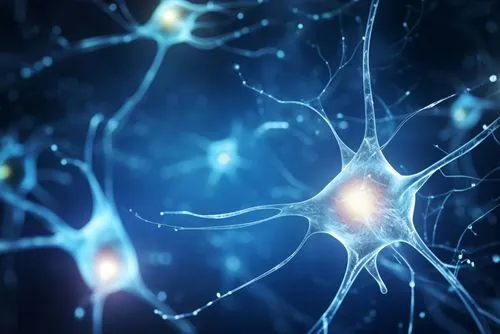
Unlocking the Secrets of Synapses: A New Breakthrough in Anxiety Disorder Research
2024-10-10
Author: Michael
A Revelation in Synaptic Research
Neurons, the fundamental building blocks of the brain, rely on intricate connections called synapses to communicate effectively and facilitate cognitive functions such as memory and learning. However, recent studies have shown that defects in these synaptic structures are linked to a range of neuropsychiatric conditions, including anxiety disorders, autism, and schizophrenia. Despite the challenges associated with drug development for these complex conditions, understanding the underlying mechanisms to promote effective therapeutic approaches remains a high priority for researchers.
The newly identified TrkC-PTPσ protein complex, unique to excitatory synapses, acts as a gatekeeper for the structural maturation of these crucial junctions. The genes associated with this protein complex have been linked to anxiety-related disorders, emphasizing its potential relevance in the development of new intervention strategies.
A New Animal Model for Anxiety Disorders
Takahashi emphasizes two key goals of this research: first, to uncover novel molecular mechanisms that govern brain cell communication, and second, to develop a new animal model that mimics anxiety disorders, particularly conditions characterized by panic attacks and agoraphobia. This model will significantly enhance researchers' ability to formulate and test new therapeutic strategies.
Understanding Anxiety Disorders on a Molecular Level
Mental illnesses represent a substantial public health challenge in Canada and around the world. The incapacity to effectively treat these disorders stems from the complex nature of neurobiology, which has left many questions unanswered regarding the mechanisms leading to cognitive dysfunction.
The TrkC-PTPσ complex has shown the ability to regulate the phosphorylation of proteins vital to synapse structure and functionality. Disruption of this complex not only impacts synaptic health but has also been linked to heightened anxiety and impaired social behaviors in experimental models.
Insights from Genetic Mutations
In this research, Takahashi’s team created genetically modified mice with disrupted TrkC-PTPσ complex functions. The results were illuminating: high-resolution imaging revealed significant abnormalities in synapse organization, along with an increase in inactive synapses. Correspondingly, behavioral assessments showed these mice demonstrated pronounced anxiety, exhibiting avoidance in novel situations and struggles in social interactions.
Conclusion: A Call for Future Research
As researchers build on these findings, there is a clarion call for increased investment in neuroscience research to unlock the mysteries of the brain. With promising breakthroughs like the TrkC-PTPσ complex on the horizon, the fight against anxiety disorders may finally be poised for a significant breakthrough, paving the way for more effective treatments in the years to come. Stay tuned for what could be the next major revolution in mental health research!









 Brasil (PT)
Brasil (PT)
 Canada (EN)
Canada (EN)
 Chile (ES)
Chile (ES)
 España (ES)
España (ES)
 France (FR)
France (FR)
 Hong Kong (EN)
Hong Kong (EN)
 Italia (IT)
Italia (IT)
 日本 (JA)
日本 (JA)
 Magyarország (HU)
Magyarország (HU)
 Norge (NO)
Norge (NO)
 Polska (PL)
Polska (PL)
 Schweiz (DE)
Schweiz (DE)
 Singapore (EN)
Singapore (EN)
 Sverige (SV)
Sverige (SV)
 Suomi (FI)
Suomi (FI)
 Türkiye (TR)
Türkiye (TR)